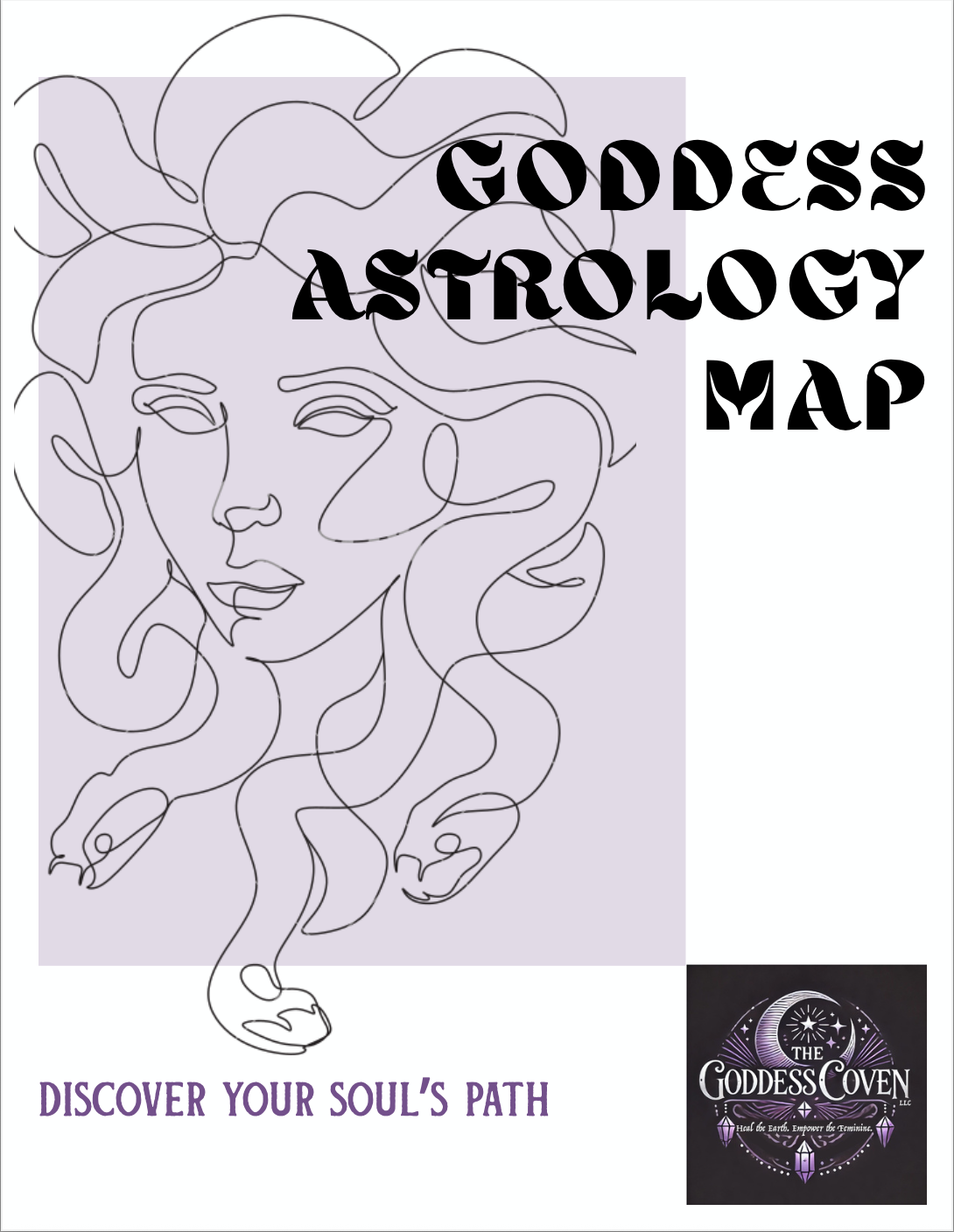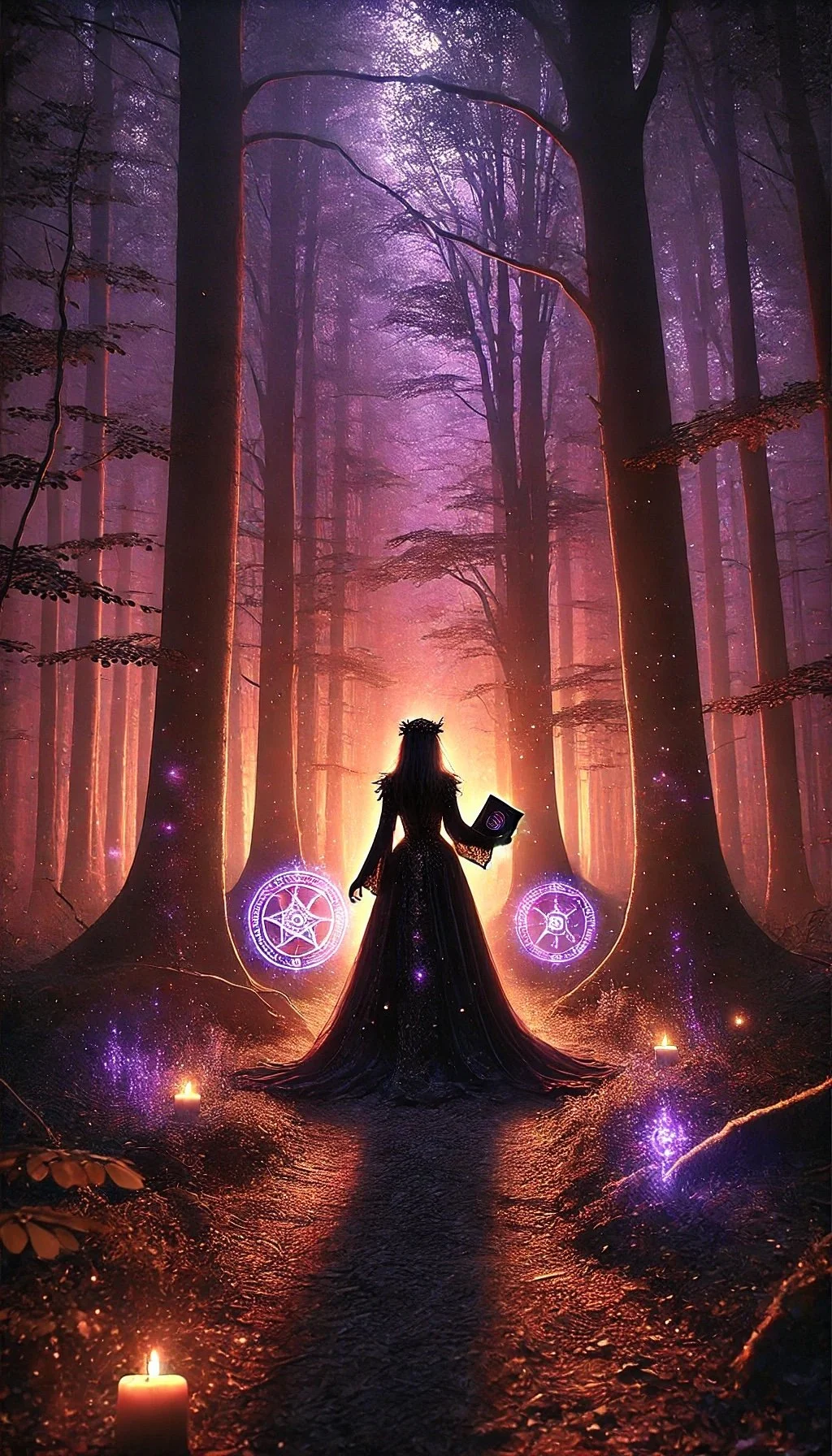
artemis
artemis: the wild moon
Artemis knew what she wanted from the moment of her birth. As a young goddess, she went to her father Zeus and made her demands clear: eternal virginity, a bow and arrows, a pack of hunting hounds, a band of nymph companions, mountains and wilderness as her domain, and permission to aid women in childbirth. Zeus, amused and perhaps intimidated by her clarity, granted everything.
This is the key to understanding Artemis: she negotiated her sovereignty from the beginning. She didn't wait to be given power—she claimed it. She didn't accept the default female fate of marriage and domestication—she refused it outright and demanded an alternative.
The word "virgin" meant something different in her time. Not sexual purity or innocence, but one-in-herself—autonomous, complete, beholden to no one. Artemis wasn't virgin because she was too pure or too innocent for sexuality. She was virgin because she belonged only to herself, and she intended to keep it that way.
While her twin brother Apollo claimed the sun and became god of civilization, music, prophecy, and order, Artemis took the opposite path. She claimed the wilderness, the untamed places, the territories beyond civilization's reach. She chose the crescent moon over the full sun—the growing light, the potential, the wildness that hasn't been domesticated into fullness.
Where Selene drives her silver chariot across the night sky in full radiant visibility, Artemis runs through forests under the slim crescent moon, accompanied only by her chosen companions—the nymphs, the deer, the bears, the hounds. Selene is the moon seen; Artemis is the moon felt—the intuition, the hunt, the quicksilver flash of movement in the darkness.
Artemis hunts. Not for sport, not for dominance, but as sacred practice—the skill of tracking, the patience of waiting, the precision of the arrow, the respectful taking of life to sustain life. She is predator and protector simultaneously, understanding that nature requires both, that the wild includes death as well as birth.
But here's what makes Artemis dangerous to patriarchy: she protects the vulnerable with absolute ferocity. When Callisto, one of her nymphs, was raped by Zeus, Artemis's response shows her complexity. In some versions, she transforms Callisto into a bear—either as punishment or as protection, depending on who's telling the story. But the deeper truth is that Artemis understands: the wild sometimes requires transformation to survive. Sometimes becoming the bear is the only way to escape the grasping gods.
When the hunter Actaeon stumbled upon Artemis bathing naked with her nymphs—violating her privacy, gazing upon her without permission—she transformed him into a stag. His own hounds tore him apart. The message was clear: consent is not negotiable, and violation will be met with consequences.
Artemis protects young girls, women in childbirth, all creatures in their vulnerable moments. She was present at her own mother Leto's difficult labor, helping deliver her twin Apollo. From birth, she understood the vulnerability of the birthing process and chose to guard it. She assists women through the dangerous passage of bringing life into the world, even though she herself chooses to never experience it.
This is the paradox of Artemis: the eternal maiden who presides over birth. The virgin who understands sexuality and chooses her own terms. The huntress who protects. The wild one who aids civilization at its most vulnerable moments. She contains multitudes without contradiction because she refuses the either/or thinking that tries to contain feminine power.
Her band of nymphs represents chosen sisterhood—women who gather by choice, not by obligation. Women who prefer wilderness to cities, independence to marriage, each other's company to men's. They dance, they hunt, they bathe in sacred springs. They create their own society beyond patriarchal structures, and Artemis protects this space fiercely.
When young Iphigenia was to be sacrificed by her father Agamemnon (to appease Artemis for a slight), the goddess substituted a deer at the last moment and spirited the girl away to become her priestess. Artemis will not tolerate fathers sacrificing daughters. She intervenes, she rescues, she offers an alternative: Come to the wilderness. Come to my temple. Come to yourself.
As the crescent moon, Artemis is potential, promise, the growing light that hasn't yet reached fullness. She is the girl before she becomes woman, the power before it's fully claimed, the wildness before it's domesticated. But unlike the patriarchal narrative that sees maidenhood as something to grow out of, Artemis makes it eternal—a choice, not a phase. You can remain one-in-yourself forever. You never have to give up your wildness.
Wild independence, maiden sovereignty, the hunt, crescent moon, protector of the vulnerable, untamed nature, chosen virginity, sisterhood
Working with freia Energy
When to call upon her:
When claiming or reclaiming your autonomy and independence
When setting fierce boundaries around your body, time, or energy
When pursuing goals with focused intention (the hunt)
When protecting yourself or others from violation
When needing to connect with wild nature or your own wildness
When choosing yourself over relationships that diminish you
When gathering with women in chosen sisterhood
Embodiment practices:
Archery or focused aiming practice (literal or metaphorical)
Moonlit walks, especially under the crescent moon
Running or moving through nature untamed
Tracking practice: Following what calls you with precision
Fierce boundary setting: Practicing swift, clear "no"
Wild woman dancing: Moving without restraint or performance
Sisterhood circles: Gathering with chosen women companions
Deer medicine: Practicing both gentleness and alertness
Altar suggestions:
Bow and arrow imagery (her primary symbol)
Crescent moon images or jewelry
Silver items (lunar metal)
Deer, bear, or hound imagery (her sacred animals)
Cypress or pine (sacred trees)
Moonstone, selenite, or clear quartz
White or silver candles
Items from wilderness: leaves, stones, feathers
Images of Artemis as huntress
Representations of your own autonomy and wildness
Reflection questions:
Where do I need to negotiate more clearly for my sovereignty?
What am I hunting—what do I pursue with focused intention?
Where have my boundaries been violated, and what consequences do I need to enforce?
How do I practice being one-in-myself, complete regardless of partnership?
What wildness in me is asking to be honored rather than domesticated?
Who are my chosen sisters—the women I gather with by choice?
How do I balance Artemis's wild independence with Selene's public radiance?
What vulnerable parts of myself need my fierce protection?
discover YOUR GODDESS astrology
Take the accessibly-priced mini-course to run your own chart online: DIY Goddess Astrology: Mapping Your Soul's Journey
OR
LET ME RUN YOUR CUSTOM GODDESS ASTROLOGY MAP FOR YOU!
I offer customized Goddess Astrology Maps where I run your birth data, give you a complete placement list, plus determine a soul path analysis, including prominent north and south node goddesses, as well as goddesses in your first house of self. The customized map includes your top three most important goddesses to work with for your soul path, with their feminist retelling stories for you to keep and a deeper analysis of their astrology in your birth chart, plus a custom ritual for each of your big three goddesses. Goddess Astrology Maps take me approximately 3 hours to complete and are delivered via email within 2-3 weeks of the order.
The goddesses are waiting. They've always been waiting.
All you have to do is call their names.
Order your customized goddess astrology map
Complete Goddess & God Placement List
Your Soul's Evolutionary Path: South Node to North Node
South Node Goddesses & Gods
North Node Goddesses & Gods
First House Goddesses & Gods
Top 3 Goddess Deep Dives
want to spiral deeper? join our patreon!
Join the coven at the level that feels right for you:
Coven Member ($5/month) - Weekly astrology transit posts to track the celestial weather, community updates, and you're helping keep the podcast, embodiment library, and ritual grimoire free
New Moon Initiate ($11/month) - Full monthly ritual guide, behind-the-scenes content, bonus podcast content including exclusive reflection prompts and teachings, and list your offerings in the Coven Shop
Full Moon Initiate ($22/month) - Everything above plus monthly full moon rituals, extended interviews, exclusive unpublished poetry, and downloadable art prints
Help us continue offering free resources while deepening your own practice.



